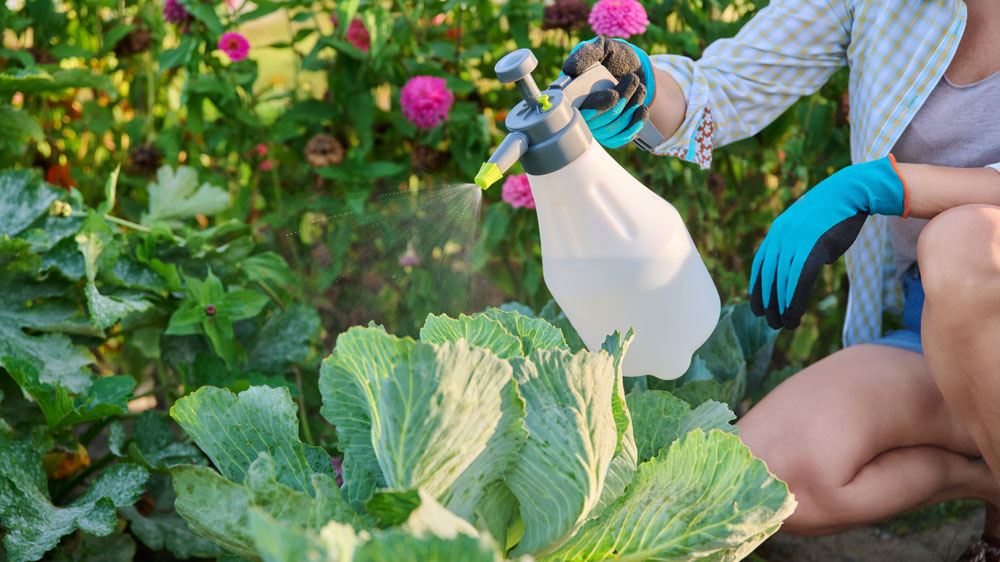
If you grow herbs, fruit trees or vegetables, you’ve likely thought twice about spraying highly toxic pesticides on these plants — but that reluctance shouldn’t be confined to edible crops.
Although pesticides have a place in some gardening protocols, the fact is that they do far more damage than you might realize. Not only can they negatively impact soil health, the bigger problem is that these toxins also kill beneficial insects that boost garden vitality. That includes honeybees, dragonflies, ladybugs, butterflies, lacewings and many other pollinators that are “good” bugs — insects that eat destructive bugs and fertilize flowers and fruit-bearing bushes.
Protecting these groundskeeping heroes while controlling the garden bad guys is a balancing act, but there are some simple strategies that may help:
Make a homemade spray
There are many organic pesticides available on the market, and if you have an expansive garden, that might be the most efficient route. But for a smaller garden and a low-cost DIY option, you can make one yourself. Simply mix one cup of vegetable oil with about two tablespoons of a mild dish soap (unscented is best) and one quart of water. Spray the concoction directly onto your plants. This is very effective for dealing with aphids and mites while leaving beneficial insects unharmed.
You can find other unwanted-pest remedies in your pantry. Insects like aphids, potato beetles, whiteflies, moths (including the diamondback moth), ants and termites are not fond of garlic, ginger or hot peppers, so infusing hot water with these aromatic ingredients overnight, then spraying it on the plants once it’s room temperature will keep many bugs at bay. (Plus, it comes with an added benefit: garlic also thwarts bacteria and fungus.)
Use crushed fossils
No, seriously. There’s a product called “diatomaceous earth” created from the fossilized remains of aquatic organisms called diatoms, and the silica from their remains is a surprisingly effective way to deter a breadth of nasty pests like ticks, spiders, fleas and ants. Simply sprinkle it on the ground around plants, but be sure to get a “food grade” formula if you’re applying it to a vegetable or herb garden.
Improve your soil and water regularly
Another major strategy is to spend more time and effort on making sure your soil is robust. Bugs thrive with poor soil because that means less healthy plants, and when plants struggle, they have fewer defenses. Keep the soil “clean,” by making sure there’s no mold or fungus growth and that it’s got the nutrients needed to feed the plants you’re growing. Also be sure to regularly rotate crops (a little variety will keep the bugs guessing).
Poor hydration also can weaken plants, so set up a watering system that can keep them hydrated even when you’re not around.
Inspect your transplants
If you’re buying plants from a farmer’s market, nursery or garden store, look them over very carefully before introducing them into your space. If the leaves appear shiny or you spot tiny eggs or dots anywhere on the plant, don’t bring it home.
It’s impossible to eliminate destructive insects completely — after all, even houseplants in a controlled environment can be affected. But by focusing on supporting beneficial insects, using natural remedies to prevent the destructive ones and improving general soil health, you’ll be well on your way toward safe and gorgeous gardens that will thrive.











